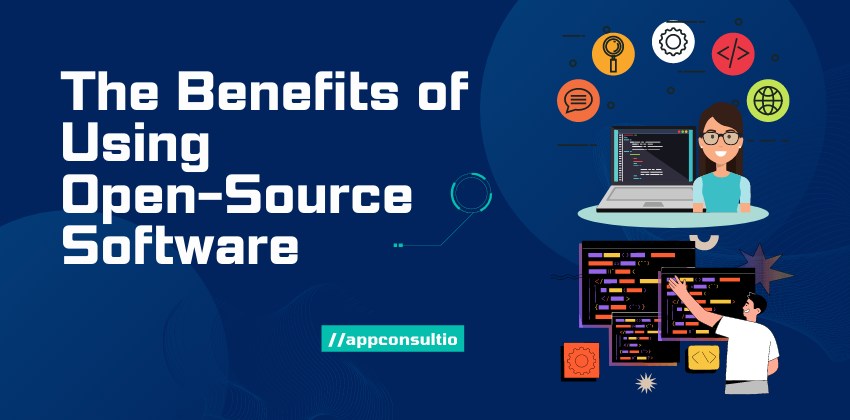
Today, open-source software is really important for many businesses. It's used in things like phones, keeping track of things, money management, and even the software that makes computers work. We have smart software experts who are great at building software using open-source tools. We're also good at making parts of programs using a programming language called Java. We help connect new software with the stuff you already use. You can ask us to help with open-source software, and you'll get good quality work without spending too much money.
What is Open-Source or Free Software?
The Free Software Foundation talks about "Free Software" as software that gives people much freedom. This means you can use it, share it, learn from it, and even make it better. When you have these freedoms, you control the software and what it does for you.
Open-source software is a kind of computer software that comes with its secret recipe (source code). This lets people look at it, change it, and even share it. You can study it, make it better, and sometimes give it to others.
Advantages of Free and Open Source Software-
1. Cost- Normally, if you use a special kind of software, you have to pay extra for each computer or person using it. But, interestingly, once things like computer programs are made, they don't cost much to copy. Free and Open Source Software (FOSS) are different because they don't ask for money to use them. You can even make many copies for different people or computers without any problem. This makes FOSS attractive for people and businesses to use.
2. Community Support-
There are many people who really like and support Free and Open Source Software (FOSS). They're volunteers who help and promote these kinds of software. They use online message boards and emails to communicate. If someone using FOSS has a question or a problem, they can post a message on these boards or send an email. The volunteers then respond by giving answers and fixing issues. They also often put together lists of frequently asked questions (FAQs) to help others who might have the same problems.
3. Security-
Free and Open Source Software are extra safe because many people can check their special code. If there are mistakes or security problems, they can be found and fixed fast. Viruses and other bad stuff are common in Windows but rare in Free and Open Source Linux.
4. Education and Research-
Free and Open Source Software are great for learning and research. They don't cost much to get and use, sometimes even nothing. You can look at and change their special code, which is good for studying. You can also make new software from their code without any legal issues. Students, teachers, and researchers can easily share their work. In schools and research places, using the Linux operating system is a good idea. It has lots of tools for teaching computer science and engineering, like programming languages C, C++, Java, and more.
5. Reusability-
Reusability means using parts of code again to make new things without changing much. This works really well with Open Source software, where people share their code. When you use Open Source software, you can look at the code, change it, and share it. This encourages developers to use code again in different projects. They can use it in the same project or other projects. A study looked at how much code gets reused in Open Source software. Websites like SourceForge have a lot of code that people can use again.
6. Reward Mechanism-
When Free Software started, it needed to be clarified how it could make money. But now, the business side of Free and Open Source Software is doing well. People make money through donations and services like helping others with the software, making it work with other things, giving support, and teaching how to use it. Some developers also feel good about helping the community and building their reputation, even if they don't get paid in money.
7. Future of Open Source Software-
Now, Free and Open Source Software has become more mature and works well both technically and for businesses. More and more people are using it. For example, in 2011, the money made from Linux servers increased by 12.3%. There are many different types of free software for different things, and in the future, there will be even more for smartphones and tablets. Competition between free and paid software will be tough, and only the best will succeed. Businesses will focus on providing services for free software. Free software is making more money than people expected, and it's clear that it will play a big role in future technology.
Conclusion-
In conclusion, Open Source Software has become a critical and versatile asset for businesses, education, research, and technology advancement. Their cost-effectiveness, community support, security, and adaptability have made them indispensable tools in various domains. As Open Source Software continues to mature, it aligns with the evolving needs of businesses and individuals, fostering innovation, collaboration, and a sustainable software ecosystem. Its expanding influence and ongoing success underscore its pivotal role in shaping the future landscape of technology and information systems.